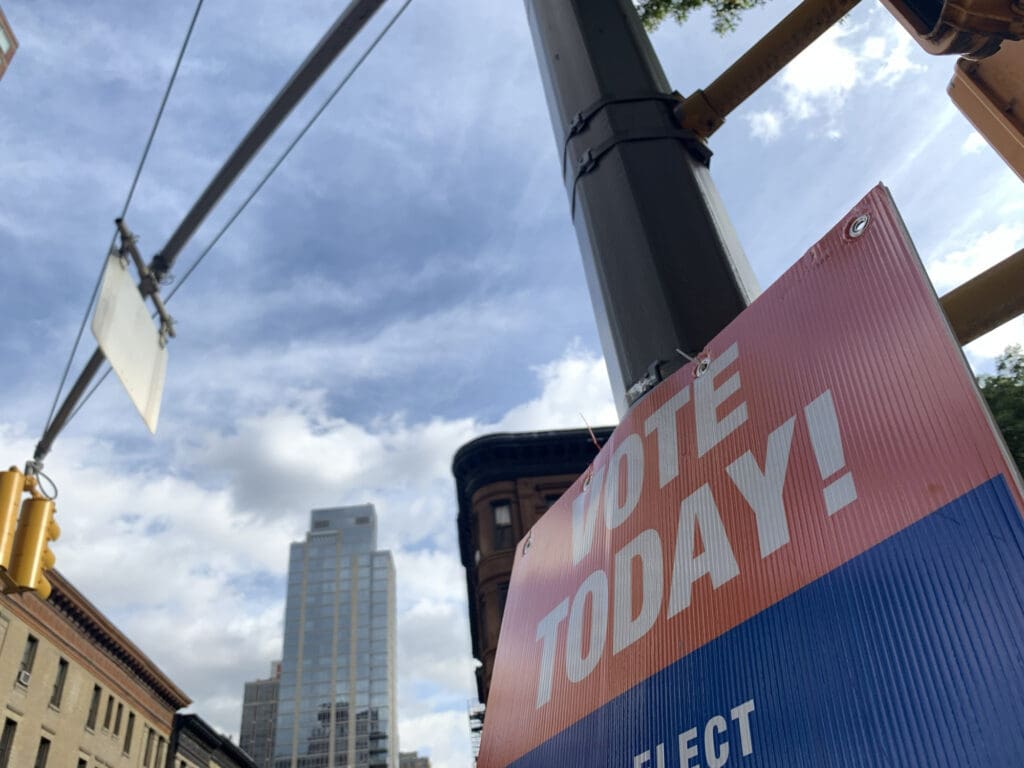As Dems Hope For a Comeback, Group Urges Local Investment

Local Democratic candidates say that they didn’t receive the institutional support their campaigns needed in 2024, as the Democratic ecosystem poured money and resources into topline contests like the presidential race.
A survey of nearly 1,000 local Democratic hopefuls conducted by the Pipeline Fund, a group that provides funding and support to progressive candidates, found that nearly half of respondents – 49 percent – said they received only some, very little or none of the help that they needed for their campaigns last year.
That percentage was even higher among first-time candidates, 58 percent of whom said they didn’t get the support they needed, as well as candidates of color, at 57 percent. Most candidates – 58 percent – had no paid staffers on their campaigns, while another 15 percent had just one, the survey found.
Those candidates say that they want access to experienced staff and campaign managers to help navigate their races.
Denise Feriozzi, the co-founder and executive director of the Pipeline Fund, said the results should come as a warning sign for national Democratic and progressive groups.
“There’s this amazing new generation of leaders that are stepping up to run,” Feriozzi told C&E in an interview. “They’re talented, they look like their communities, they’re doing it for the right reasons. But unfortunately, our infrastructure isn’t keeping pace with the needs of these candidates.”
Local candidates, she said, are “facing all kinds of challenges – financial, emotional, personal safety – that are going unaddressed. And despite the challenges, these candidates are remaining hopeful, and they’re even going to run again. So we really think this means we’ve got to build more resources and support for them to succeed.”
Starting Local
As Democrats look to claw their way back to power after a bruising 2024 election cycle, some strategists have urged the party to take a closer look at local and state offices – school boards, county commissions, state legislatures – arguing that competing in those races will be key to winning back voters who have soured on the national Democratic brand.
Republicans, they say, have spent years gaining a foothold in local offices across the country. And that strategy has paid off. The GOP controls 57 percent of state legislatures, according to the National Conference of State Legislatures. In turn, Republicans have gained an edge in drawing congressional districts, assembled deep benches of future candidates for federal office and used the levers of power to shape things like voting laws.
“Every cycle, we get drawn into these big national fights – Senate races, presidentials – and we neglect these very important state- and local-level races. And those are the offices that we can use to show people that Democrats are for them; that government can still work,” one Democratic consultant said.
Still, local races tend to be far cheaper to run than federal contests, and many candidates simply can’t afford to hire the kinds of political professionals that advise candidates at higher levels. Feriozzi said that local candidates aren’t necessarily trying to replicate the organizations of federal campaigns. But, she noted, consultants would be wise to at least pay attention to these local contests.
“I’ve talked to some consultants who understand this – that this is the next generation of candidates that you’re going to want to pitch for Congress,” she said. “And so getting in early and getting to know those folks…and acknowledging them and knowing that these are our next candidates for Congress, for governor, for U.S. Senate is a smart strategy.”
